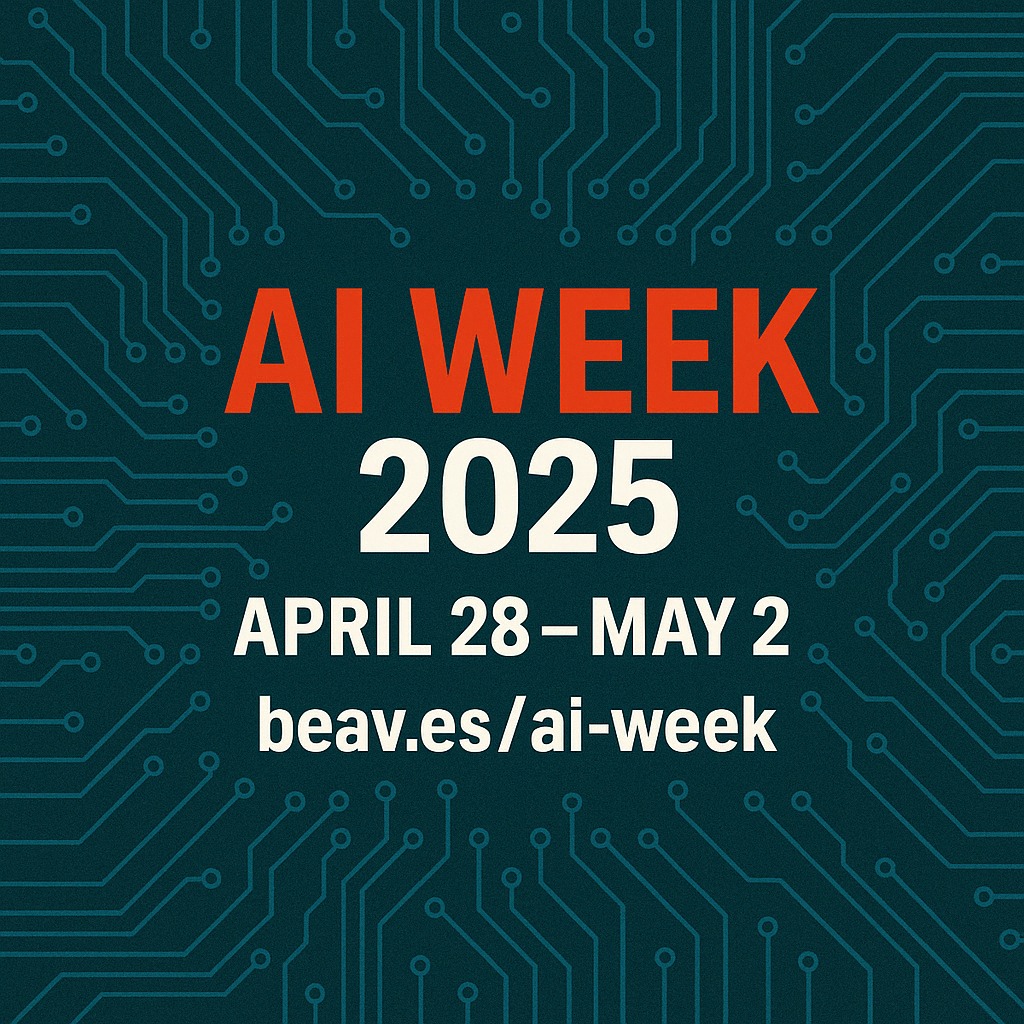Celebrating Innovation: AI Week 2025 at Oregon State University
Published by: WCET | 6/26/2025
Tags: Artificial Intelligence, Digital Learning, Managing Digital Learning, Student Success, Technology
Published by: WCET | 6/26/2025
Tags: Artificial Intelligence, Digital Learning, Managing Digital Learning, Student Success, Technology
Artificial intelligence has quickly shifted from abstract theory to an everyday tool—and few places is that shift more visible than in higher education. Here on WCET Frontiers, we’re always excited to showcase institutions that are leading the way in thoughtfully integrating AI into teaching, research, and campus operations.
This week’s post highlights Oregon State University’s AI Week 2025, a dynamic, collaborative event that brought together students, faculty, industry leaders, and community members to explore the promise and responsibility of AI in higher education. From hands-on workshops to insightful discussions on ethics and impact, OSU’s approach offers a meaningful blueprint for how institutions can engage with emerging technologies in inclusive and intentional ways.
Special thanks to guest author Sarah Payne from OSU’s Office of the CIO, and the entire team behind AI Week, for sharing ideas, lessons learned, and inspiration for the road ahead.
Enjoy the read,
Lindsey Downs, WCET
AI is no longer a distant concept but a transformative force actively reshaping how we live, learn, and innovate. From breakthroughs in healthcare, education, and environmental science to creative solutions for everyday problems, the possibilities feel limitless. Oregon State University is at the forefront of this revolution, embracing AI in thoughtful and future-forward ways, pushing the boundaries of what’s achievable even further. Last month, OSU hosted AI Week 2025, exploring how AI can shape higher education and research, and how it can be done ethically and equitably.

OSU has a storied history with artificial intelligence. It was the first university in the nation to offer both master’s and doctoral degrees in AI. It is also the home of Professor Emeritus Thomas Dietterich, one of the pioneers of machine learning. It is the alma mater of NVIDIA founder and CEO Jensen Huang, a revolutionary leader in AI. OSU researchers are making groundbreaking advancements, like developing an environmentally friendly chip that uses half the amount of electricity needed to power AI applications, or uncovering the link between gut bacteria and neurological disorders.
OSU is profoundly interested in leveraging AI to enhance academic excellence and drive impactful research. In 2024, the university hosted its inaugural AI Week, inviting faculty, researchers, students, employees, and the public to explore AI’s potential and implications through presentations and hands-on experiences. Influential leaders from NVIDIA and Microsoft, including Jensen Huang and Dr. Michael Jabbour, Microsoft’s Chief Innovation Officer for Higher Education, visited the Corvallis campus to share insights on AI’s transformative impact. The week culminated in a global futures forum between OSU President Jayathi Murthy and Jensen Huang, showcasing OSU’s pioneering work and how AI can contribute to advancements in climate science, workforce, economic impact, and creativity.
AI Week 2025 continued to build on the momentum from the inaugural event, integrating key takeaways to inform the planning and implementation of the 2025 event. In collaboration with the Office of the Provost, OSU’s Chief Information Officer chaired a dedicated AI Week Planning Committee to shape a program, reflecting the university’s commitment to the ethical and interdisciplinary applications of AI. Together, the committee organized a lineup of 51 events covering a wide span of topics from the basics of AI to a deep dive into generative models. To ensure that AI week appealed to different user perspectives, the committee also created four themed tracks:
The AI Week Planning Committee invited key industry leaders from various sectors to host presentations, workshops, and hands-on experiences. Microsoft and NVIDIA were returning partners, and OSU welcomed other industry leaders, such as Workday, ServiceNow, Intel, Dell, Zoom, Mark III Systems, Google Cloud, AWS, and Info-Tech.

Throughout the week, more than 1,200 participants engaged in conversations on topics such as ethical considerations and practical applications of AI, as well as its impact on cutting-edge research. This multifaceted emphasis resonated with attendees, who sought to understand not only the capabilities of AI but also the importance of using it responsibly.
Among the lessons learned, the importance of critical thinking in the AI space stood out prominently. Sessions such as “The State of AI and the Questions We Should All Be Asking” and “AI Creativity and Ethics” encouraged participants to grapple with the ethical complexities of emerging technologies. These sessions underscored that while AI’s potential is vast, it must be harnessed with care and consideration. Participants also appreciated the practical insights gained from sessions such as “Copilot 101: Getting Started with AI at OSU” and a presentation demonstrating how Workday uses AI. These events empowered attendees to confidently integrate AI into their own academic, professional, and creative endeavors, bridging the gap between abstract concepts and actionable strategies. Additionally, OSU researchers hosted a series of lightning talks and poster sessions showcasing AI in use across the university, offering attendees the opportunity to interact with real-world applications.
OSU looks forward to continuing this tradition and further integrating AI into its campus community. AI Week 2025 was an exponential success, setting the stage for future events at OSU. This year, the growing interest in hybrid and virtual sessions also expanded accessibility and engagement, paving the way for even broader participation in years to come. The university is also exploring the idea of expanding AI Week into several AI-focused days throughout the year. This approach would engage different colleges and departments to curate specialized events, ensuring that the conversation around AI remains dynamic and inclusive.
AI Week 2025 left us with a clear message: the journey of integrating AI into our lives is as much about ethics and collaboration as it is about innovation. It’s a reminder that the future of technology isn’t just about what we can achieve. It’s about how we achieve it, together.
This post was written by Sarah Payne, Oregon State University
Enterprise IT Strategic Communications Coordinator, Oregon State University